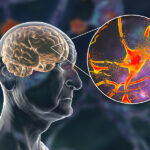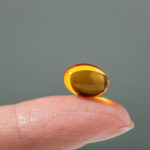By David Blyweiss, M.D., Advanced Natural Wellness
March 09, 2012
- Clues emerging on the mystery of Alzheimer’s
- The connection between hypertension and risk of dementia
- How to naturally lower your blood pressure
Up until recently, Alzheimer’s has been a complete – and very frightening – mystery.
It’s known that having a family history of Alzheimer’s slightly increases your risk. And so does aging. In fact, one in eight people age 65 or over will get either Alzheimer’s or some other form of dementia.
Those are terrible odds. What’s worse, scientists have not been able to tell us very much about how to decrease our risk. So it feels a little like Russian roulette.
I have written here about supplemental support you can take to improve your overall brain health as you age, and improve your chances against Alzheimer’s. But today, I’d like to share a new risk factor uncovered by recent research… and what you can do about it…
Dementia itself is not a disease, but a collection of symptoms sometimes progressing into a disease, such as Alzheimer’s. When we can trace these symptoms back to an underlying cause, especially when it is from a vitamin or nutritional deficiency, we can often reverse the progression of symptoms and avoid disease.
But not always.
MD Exposes the Hidden Danger to Your Eyes

When your eyesight starts to fail, it's a real problem. Suddenly you can't go to the grocery store... you can't get to the doctor if you have an emergency... you can't meet your friends for dinner…
Your "regular" doctor doesn't have time to keep up with the latest research. And the same goes for eye doctors. They go to school to learn how to fit you for glasses and contacts, but have no way of preventing the damage and loss of eyesight that threatens your freedom and independence.
Let me show you something that explains a LOT about how your eyes work.
In my FREE Special Report, I'll show you a HUGE, untapped resource for your eyes that safely and naturally restores clear, effortless eyesight.
Click here to get started...
That’s why determining risk factors and treating those earlier in life can be such a life-saver later. For example, we know a history of high blood pressure, obesity and diabetes can eventually trigger heart disease. So doctors look to solve or avoid those conditions, long before they affect your heart health.
These same risk factors also appear to trigger what is known as “vascular dementia” – with as many as 50% of all cases of vascular dementia being linked to hypertension. But Alzheimer’s always appeared to be in a league of its own.
Recent studies, however, show the line between vascular dementia and Alzheimer’s may not be as solid as we once thought. Many patients have a mix of the two dementias, and hypertension in particular, is now being linked to Alzheimer’s as well.
The most compelling study so far was purely observational – but the results were strong enough to urge researchers to begin designing and implementing studies that will hopefully show a more definitive link.
The study followed 837 men and women over age 55 who already had mild cognitive impairment (MCI) – a less severe condition that is often a precursor to dementia. Half of the subjects had vascular risk factors, such as high blood pressure, diabetes and high cholesterol. Those subjects who resolved all of their vascular risk factors were 39% less likely to develop Alzheimer’s. And those who at least addressed and reduced these factors experienced a 26% reduction in developing the disease.
Other studies have pointed to hypertension even more specifically.
One possible explanation is the impact hypertension has on brain, causing the scarring indicative of Alzheimer’s known as white matter lesions. White matter is an intricate system of nerve fibers that allow brain cells to communicate with each other. Even slightly elevated blood pressure can damage the tiny blood vessels that nourish white matter, interrupting those signals. Over time, this can lead to significant, irreparable damage, and ultimately, to disease.
Two further studies point to this link:
- The Women’s Health Initiative showed women 65 and older with high blood pressure had significantly more white matter lesions in their brains eight years later. And the higher their blood pressure, the higher volume of white matter damage.
- A Johns Hopkins University-led study tracked 983 people for more than 15 years, starting in middle age. It found that the longer people spent with uncontrolled high blood pressure, the more white matter damage they accumulated.
This is both the good news and the bad news, wrapped up into one.
Obviously, those who address their vascular risk factors – especially high blood pressure – early in life are dramatically improving their odds of dodging Alzheimer’s later.
The World's Quickest Solution for Ending Prostate and Urinary Misery
This has recently been revealed to be one of the only real breakthroughs in prostate health.
The seeds of a strange fruit (sometimes called "Chinese Apples") hold powerful phytonutrients that are a revolution in prostate health.
In fact, UCLA and Veterans Administration research have now proved this to be true.
Not only that, but it may be the worlds quickest solution for ending prostate misery.
Simply stated, these phytonutrients represent a huge step beyond beta sitosterol, saw palmetto, and other phytosterols alone.
Simply click HERE if you want to have fast prostate relief...restful, uninterrupted sleep...no more constant "urges to go"...enhanced virility...and optimal prostate support for life.
The bad news is once you have the symptoms or diagnosis of Alzheimer’s, it’s already too late. The damage has been done.
I can’t think of a better reason to start now… at whatever age you are… to improve your vascular health. And especially, to lower your blood pressure. Here are a few ways to get started today…
High blood pressure comes down fastest with lifestyle changes such as exercise, yoga, meditation or any form of stress-reduction. Unfortunately, you can’t buy these in a store or online. You have to actually make the change, every day, for it to make a difference.
As far as supplementation, CoQ10 has been shown to reduce blood pressure, and also, has a positive effect on diabetes – another vascular risk factor. CoQ10 is also one of the best forms of cell food – and healthy brain cells stand a much better chance against Alzheimer’s.
Make sure you get enough calcium, magnesium and potassium in your diet, and/or in your supplements.
Also, you may be taking over-the-counter medications, or even some natural products, that can increase your blood pressure, such as decongestants, NSAIDS and diet pills that include caffeine.
Teas and other natural products containing licorice root, ephedra, guarana, kola nut, yerba mate, ginseng and yohimbe, may also raise blood pressure.
Of course, one of the reasons hypertension is known as the “silent killer” is that there are few symptoms until it is quite high – and by then, it may be doing serious damage and be more difficult to reduce.
Take your blood pressure regularly – it is easy enough to do at home, on your own, with the automatic cuffs sold over-the-counter today. Take it at different times of the day – first thing in the morning, before bed, after any kind of exertion – and record the number for a while. Note your averages throughout the day, and also, if you have spikes or drops at specific times.
Here are the ranges you should know:
- Normal blood pressure is below 120/80
- Prehypertension is when the top number (systolic) is between 120 or the bottom number (diastolic) is between 80 and 89.
- Stage 1 hypertension is systolic pressure between 140 to 159 or diastolic pressure between 90 and 99.
- Stage 2 hypertension is systolic pressure higher than 160 or diastolic pressure of 100 or higher.
Resources:
Li J, et. al. Vascular risk factors promote conversion from mild cognitive impairment to Alzheimer disease. Neurology. 2011 Apr 26;76(17):1485-91. Epub 2011 Apr 13.
Sahathevan R, et. al., Dementia, stroke, and vascular risk factors; a review.
Int J Stroke. 2012 Jan;7(1):61-73. doi: 10.1111/j.1747-4949.2011.00731.x.
Kuller LH, et. al., Relationship of hypertension, blood pressure, and blood pressure control with white matter abnormalities in the Women’s Health Initiative Memory Study (WHIMS)-MRI trial.
Women’s Health Initiative Memory Study Research Group. J Clin Hypertens (Greenwich). 2010 Mar;12(3):203-12.
Linden W, Moseley JV. The efficacy of behavioral treatments for hypertension. Appl Psychophysiol Biofeedback. 31.1 (2006): 51-63.
Hodgson JM, et. al. Coenzyme Q10 improves blood pressure and glycaemic control: a controlled trial in subjects with type 2 diabetes. Eur J Clin Nutr. 56.11 (2002): 1137-1142.






